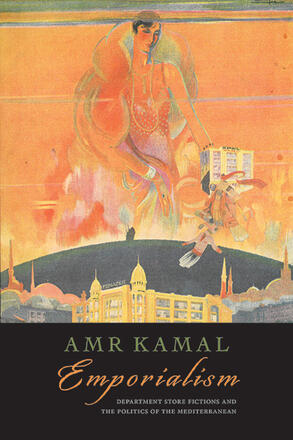
Emporialism
Department Store Fictions and the Politics of the Mediterranean
Alternative formats available from:
A comparative study of iconographic and fictional representations of department stores in France and Egypt, as sites of imperial and Mediterranean cultural memory, from 1859 to the present.
Description
This book examines what Amr Kamal calls the phenomenon of emporialism, or the convergence between the spaces and imaginaries of empires and emporia in the context of a modern Mediterranean divided among the British, French, and Ottoman empires. By "emporia," Kamal refers to the commercial network of nineteenth-century department stores, which gained prominence after the Suez Canal project. Taking as a focal point French and Egyptian department stores, the author examines emporialism as a set of phenomenological experiences, discursive and social praxes, and mechanisms of control and resistance, born from the intersection of modernity, colonialism, and mass consumption. Drawing on archival evidence, Kamal reads iconographic and literary representations of emporia in English, French, Arabic, and Hebrew, from the nineteenth century to the present, addressing works by Émile Zola, Huda Shaarawi, Jacqueline Kahanoff, and others. Emporialism, Kamal argues, served to rewrite the history of the Mediterranean, to reinvent national belonging, and to interrogate issues of modernity and social justice.
Amr Kamal is Associate Professor of French, Arabic, and Comparative Literature at the City College of New York and the CUNY Graduate Center.
Reviews
"A major critical study of the phenomenon of the department store in modern consumer culture, Emporialism offers a stimulating intervention in the fields of Egyptian literature, French literature, cultural studies, and postcolonial studies. Blending historical, literary, and visual analysis, Kamal rigorously draws out and cross-examines the interplay of imperialism, Orientalism, and commerce in transnational contexts, while the illustrations help highlight the rich iconography of the emporium." — H. Hazel Hahn, editor of Cross-Cultural Exchange and the Colonial Imaginary: Global Encounters via Southeast Asia
"The word 'Emporium' today carries with it a quaint and nostalgic reference to a luxurious and remote past. But if the great nineteenth-century 'department stores' have been eclipsed today by the Amazons of the Internet, Amr Kamal's genealogical, multinational study invests them with an 'aura'—in the sense given the word by Walter Benjamin. In its disappearance, Emporialism casts an illuminating light upon contemporary consumer culture." — Samuel Weber, author of Preexisting Conditions: Recounting the Plague and Singularity: Politics and Poetics